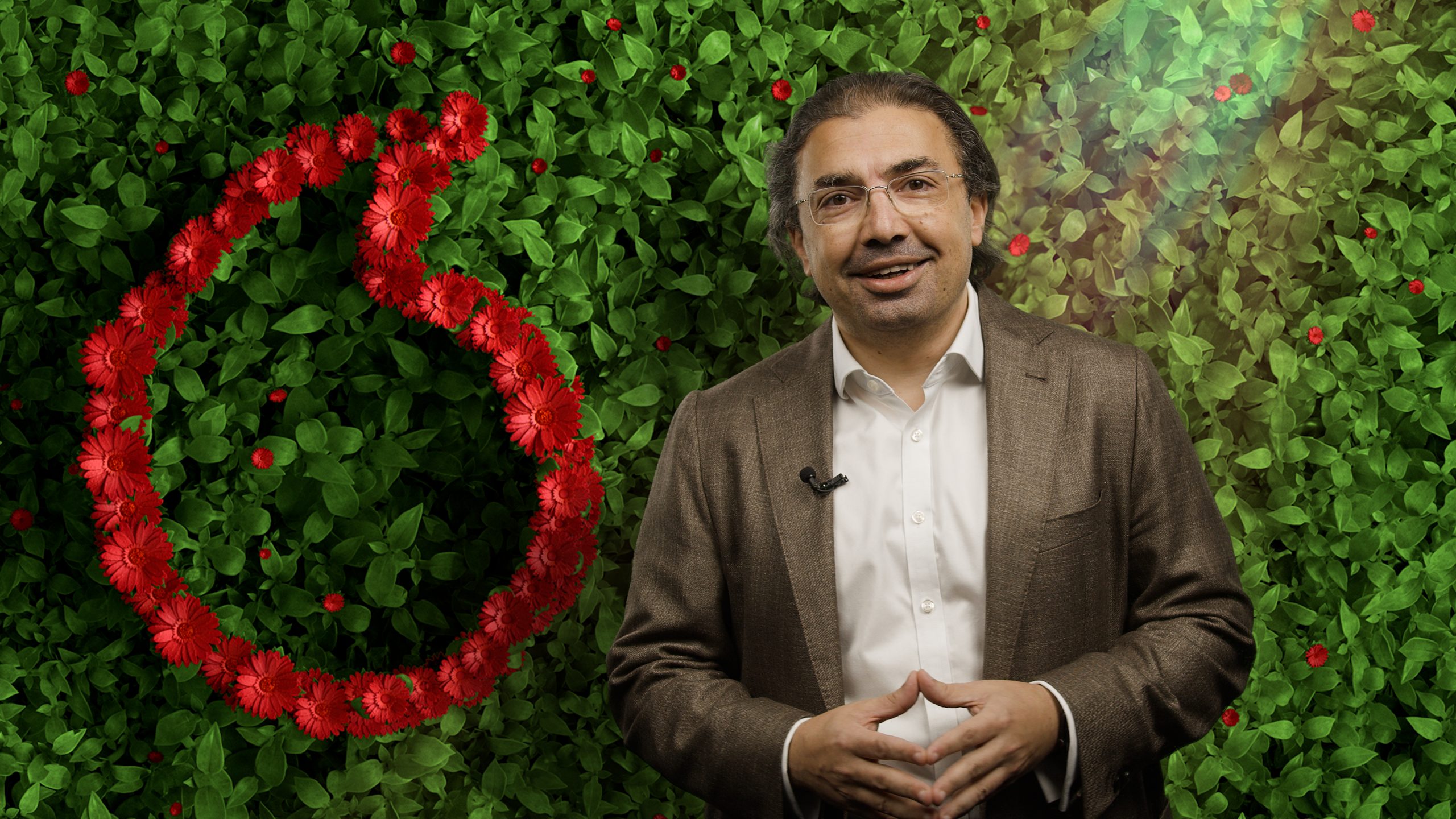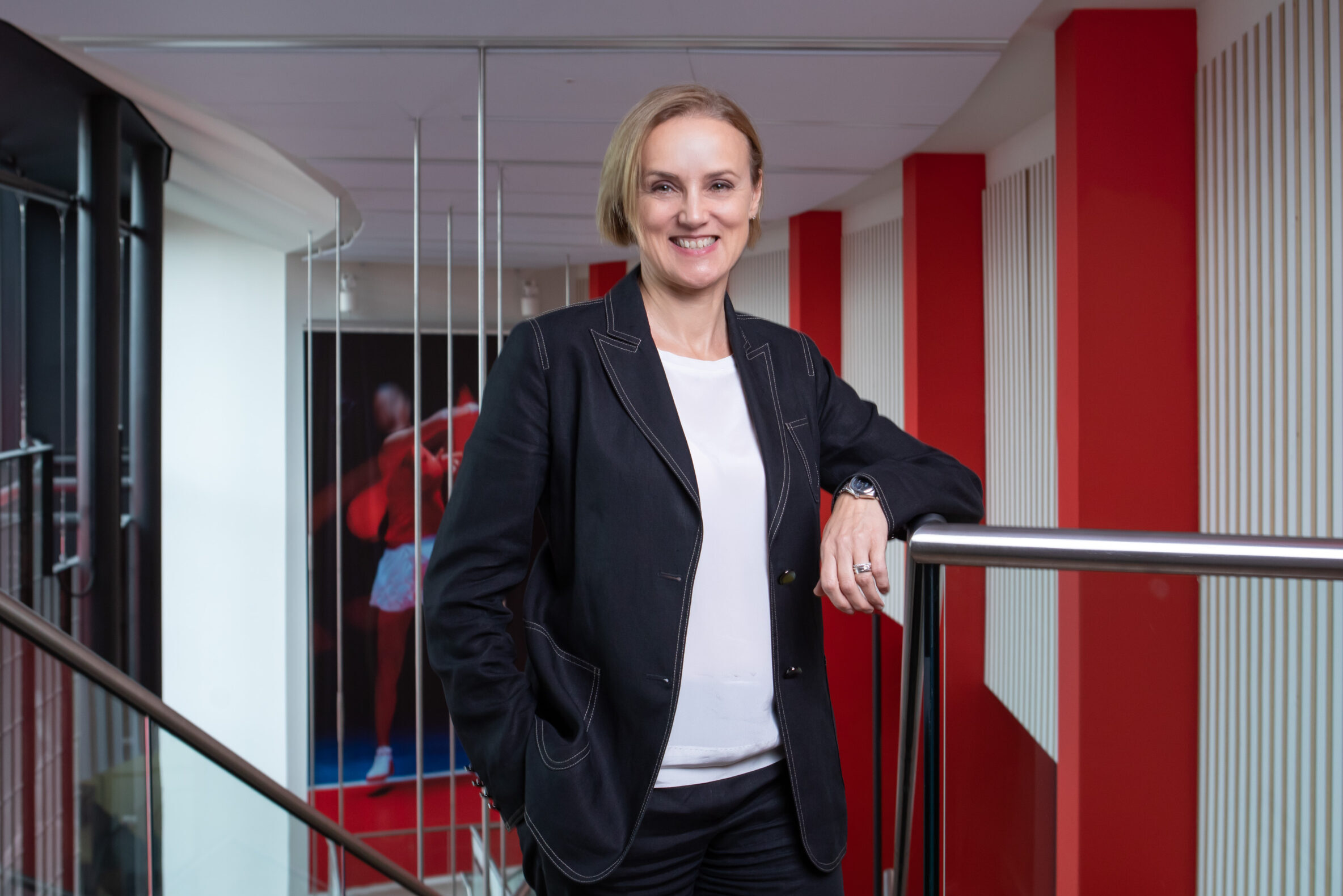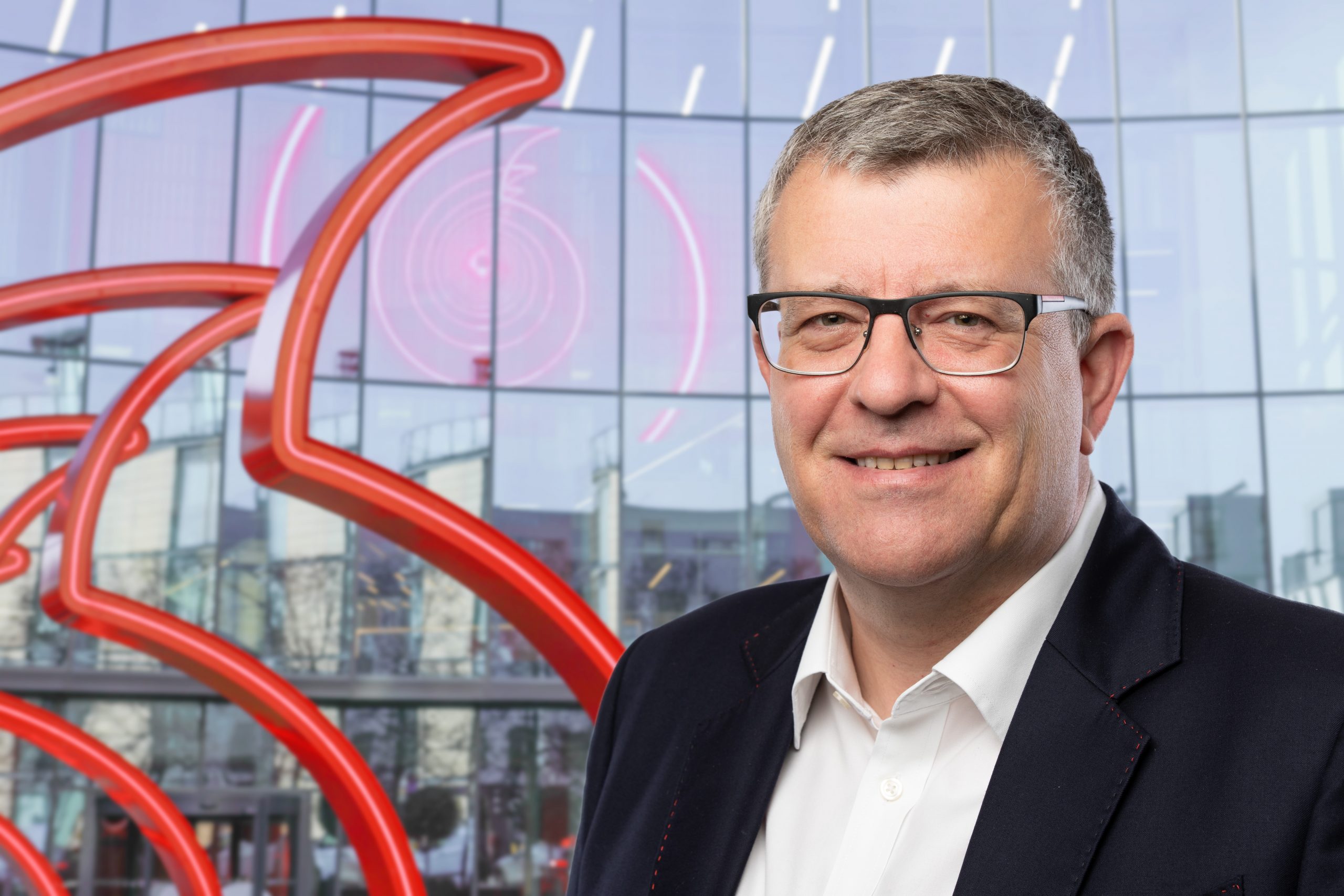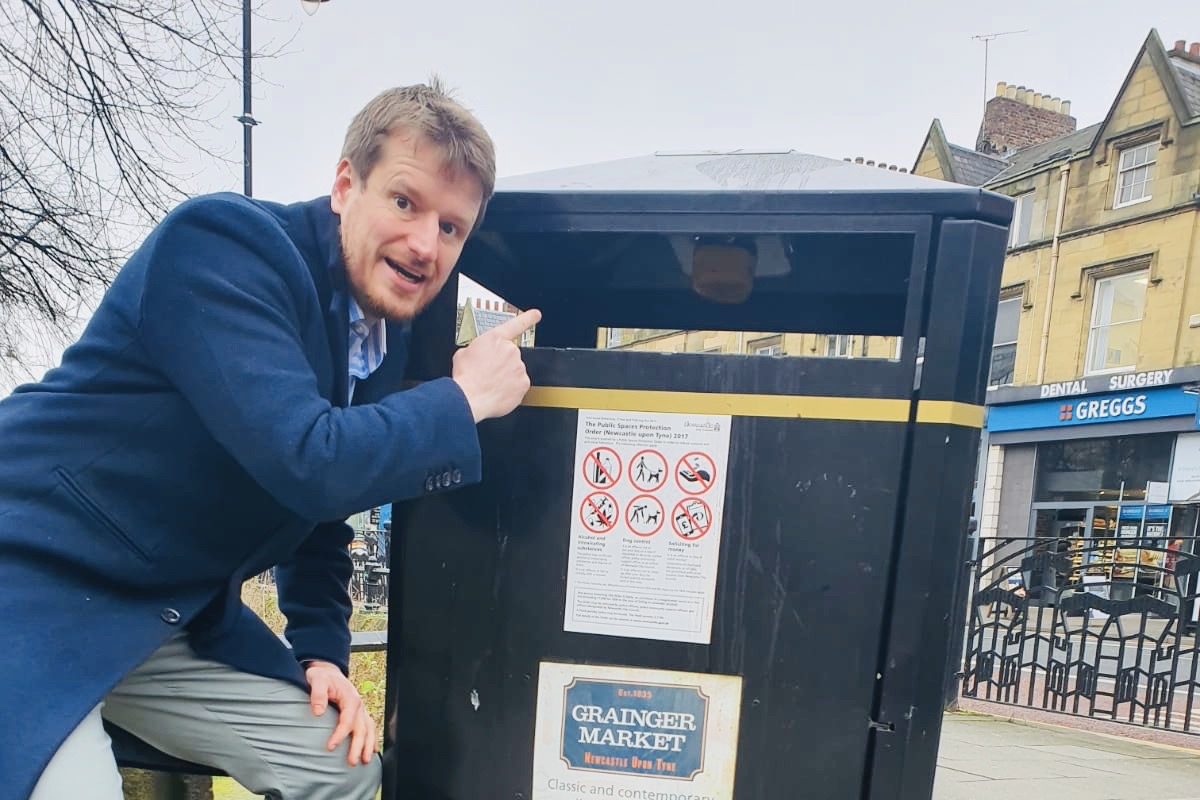
Guy Matthews, Head of Public Sector for Vodafone Business UK, explains his role and extols the virtues of plain English and smart bins.
As Head of Public Sector for Vodafone UK, I look after Vodafone’s relationships with local government, the National Health Service, the police and firefighters – known as “blue light” services – education, housing and charities.
It’s a vast and diverse sector employing more than five million people and spending more than £300bn a year. There are 418 local authorities, 206 NHS Trusts and 105 blue light organisations. So there’s no one call we can make to talk to the NHS at large; companies like Vodafone must invest the time and resource to developing 206 individual, local relationships.
That’s a lot of travelling up and down the country and a lot of conversations. And during those conversations I try very hard to unleash my inner Chrissie Mayer OBE. She is the wonderful woman who founded The Plain English Campaign, which recently celebrated its 40th anniversary.
Because it’s a cringe-worthy mistake to bounce up and down like Tigger in Winnie-the-Pooh extolling the virtues of “IoT” or “digital transformation” if no-one really knows what you’re talking about. I know this from painful personal experience.
Simplicity and convenience are what our customers most want and deserve. They shouldn’t feel bamboozled by tech companies speaking gobbledegook. Their world is complex enough.
Rubbish economics
Which is why I love bins. Smart bins.
Sensors on the underside of municipal bin lids record how full the bins are. So the bin lorries visit only bins that are full. Simple. Easy to explain. No jargon. Newcastle City Council has reduced the number of bin visits by 700 a day, allowing resources to be reallocated to other services.
This is also good for the environment. A litter bin collected once a week generates 141Kg of carbon dioxide (CO2) annually through the transport needed to empty it. So Newcastle has managed to halve its CO2 emissions simply by using bin sensor technology.
Let’s do some maths.
There are nearly 570,000 litter bins in the UK. Assuming they are emptied once a week, that generates more than 80,000 tonnes of CO2 a year. If every council replicated Newcastle’s smart bin policy, we’d reduce annual CO2 emissions by 40,000 tonnes. That’s like taking 7,600 cars off the road.
So when we’re talking to all our customers about all the wonderful things we can do for them – from unified communications to internet of things connectivity, cloud hosting to data analytics – we won’t baffle them with tech speak. We’ll show how our technology can improve their working lives in simple, practical terms.
My goal is to do Chrissie Mayer proud and win an OBE for services to plain English…in tech communications.
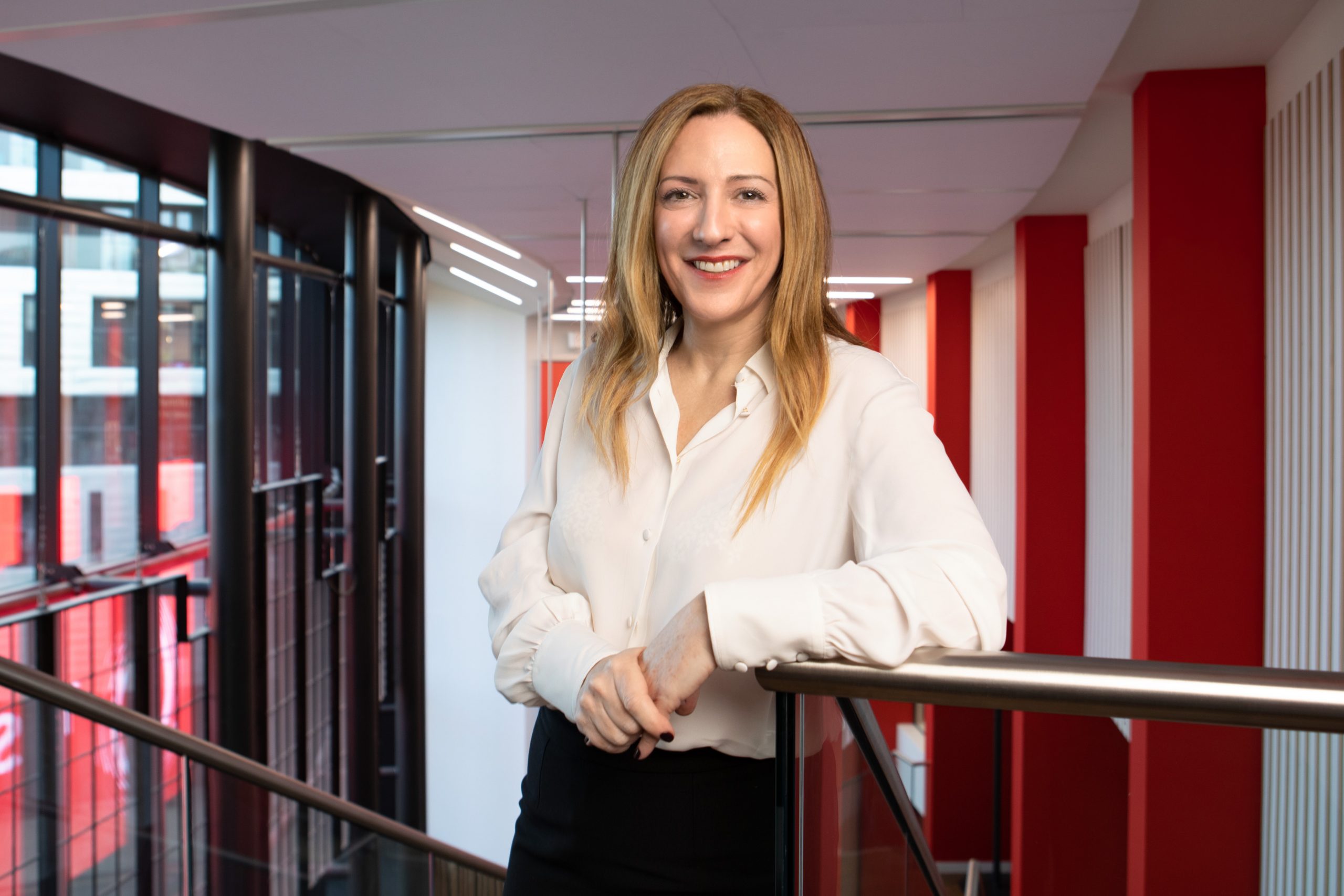
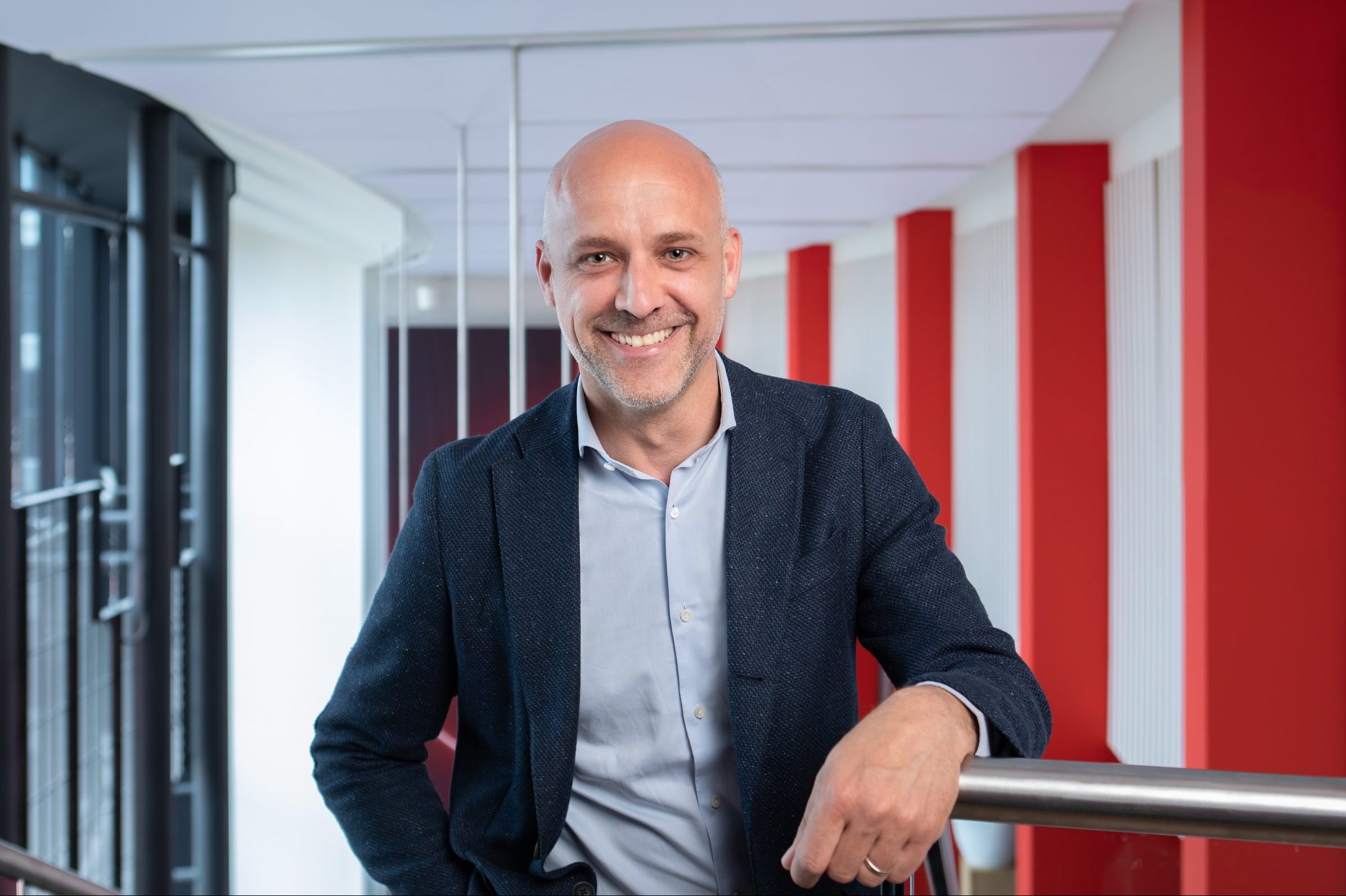
![Nicki-Lead_image[OPTIMISED]](https://www.vodafone.co.uk/newscentre/app/uploads/2023/10/Nicki-Lead_imageOPTIMISED.jpg)
